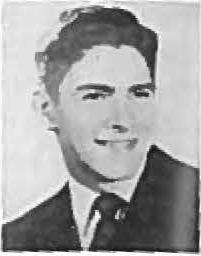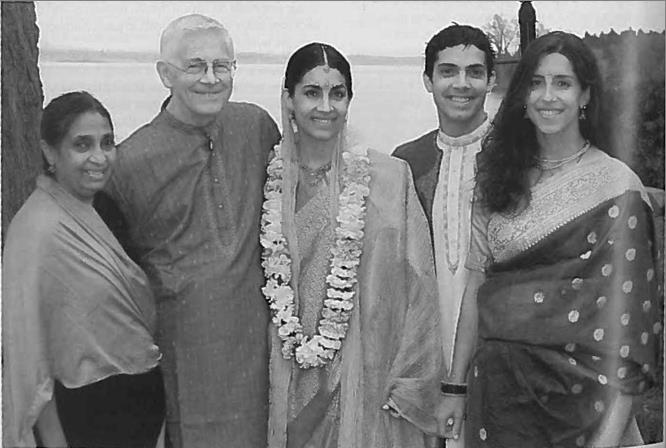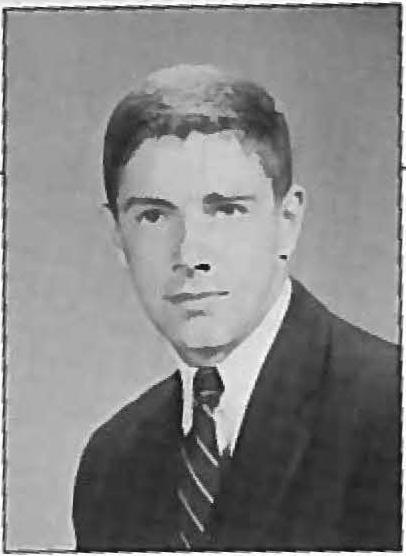Deceased February 4, 2015
View alumni profile (log in required)
Read obituary
50th Reunion Book Entry
In Memory
We lost a special person. Rolfe Eastman died on Feb. 4, 2015, from complications following a re-stenting of his heart. It is not a cliché to say that Rolfe was one of a kind. An unusual combination of brilliance and innocence, he coasted through life with a gentle smile, openness and wonder and genuine caring for others. He was my roommate for junior and senior years in Beta House, with Jim Tulloch ‘59 and Dwight de la Ossa ‘59 and had roomed for the first two years with Paul Dodyk ‘59, with Howie Shea ’59, then Steve Gurko ‘59. We were as diverse a collection as Amherst could produce. Yet all saw his qualities. Dodyk’s “strongest impression of Rolfe from the beginning was his unusual gentleness. It was really quite extraordinary for post-adolescents as we then were and it only grew stronger over the years as he dedicated his life to others in Burlington.” Del recalled, “I think of Rolfe often and of the glee with which he quoted E. E. Cummings. With his wry smile and twinkle in the eye, everything was fun for him.” And Hank Poler ’59 noted: “He had his own drummer, and he followed a path that gave him and others around him a loving journey. He gave of himself at every turn and always with a gentle smile that was his signature.”
Rolfe and I remained close friends after college and shared many professional and personal experiences.
As a star pitcher for the Amherst baseball team, with his lanky frame and deceptively languid motion, Rolfe never appeared to be exerting any effort yet he was remarkably effective. That was true in other instances at Amherst and throughout his life. For example, he went into final exams senior year owing 10 papers and somehow managed to complete them all and pass all his courses. Many of us remember his large fish tank, which provided a mesmerizing background for weekend dates, where we sat in our room and read poetry, ignoring the rather raucous partying elsewhere. Before commencement, Rolfe hosted the roommates in Burlington, Vt., introducing us to lobsters baked on the Lake Champlain beach, to his country doctor grandfather (and doctor father, not to mention his stoic but warm Yankee mother), and to the pleasures of indolence. After college, Rolfe got an M.B.A. at Boston University and worked in administration at a Burlington college. We reconnected when I came back from two years as a doctoral student in India; when he decided to join the Peace Corps, he ended up in a training program I ran for volunteers who consulted to small business in India. Here again, he used his remarkable tolerance for ambiguity to fit in and be effective. Rolfe’s consulting work was so effective that his largest client kept him on for a year and invited me out for a consulting gig. Rolfe ended up marrying Viraj, his local Marathi teacher, and brought her back to Vermont where they raised their beautiful family.
Back in Burlington, he thought that he might like to do public school administration but realized that it would be good to have some classroom experience first so he taught in a Burlington Elementary school. This experience proved so satisfying that he spent the rest of his career in the elementary classroom, making a huge difference in the lives of many young kids. In the meantime, his own family grew, with three beautiful and brilliant children, Shanta, Lakshmi and Ashok. Shanta graduated from Hampshire College, Lakshmi is an Amherst graduate and Ashok went to MIT.
With the rare combination of an M.B.A. and experience teaching elementary school, Rolfe joined the board of a local credit union and played an active part in building their bank. He was also an enthusiastic board member for Puppets in Education, a Vermont non-profit that reaches thousands of kids yearly, using puppets to address disability and problematic social issues.
At our 55th reunion, Rolfe was vigorous and still enthusiastic about the broad issues facing education and the young. A spirited conversation about charter schools and their consequences was recalled fondly by Jack Bryer ‘59, who joins Rolfe’s many friends in mourning the too early passing of this gentle, caring, remarkable person.
Allan Cohen ‘59


